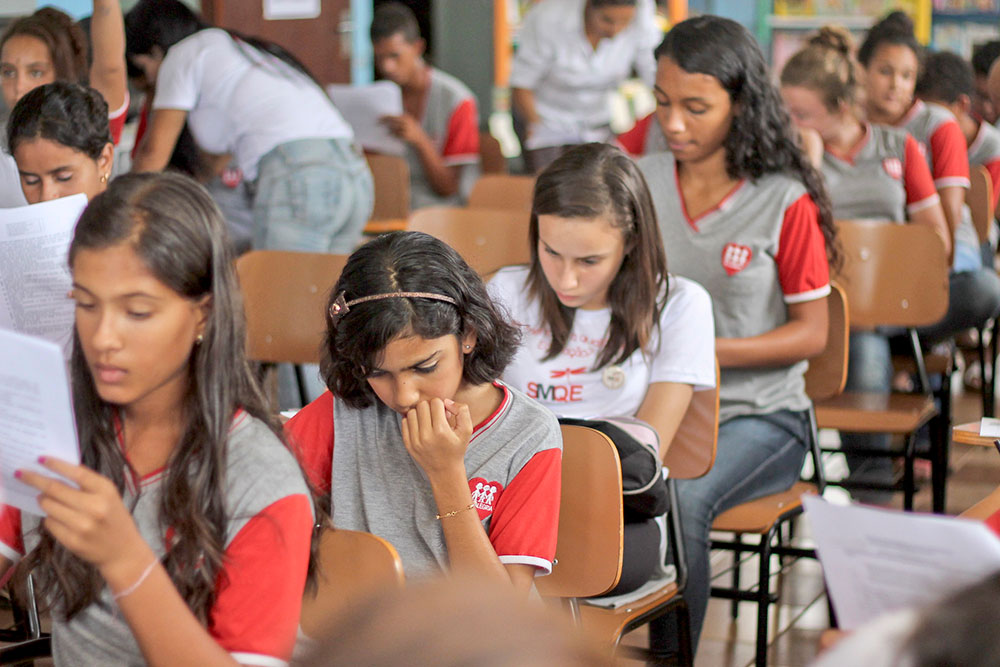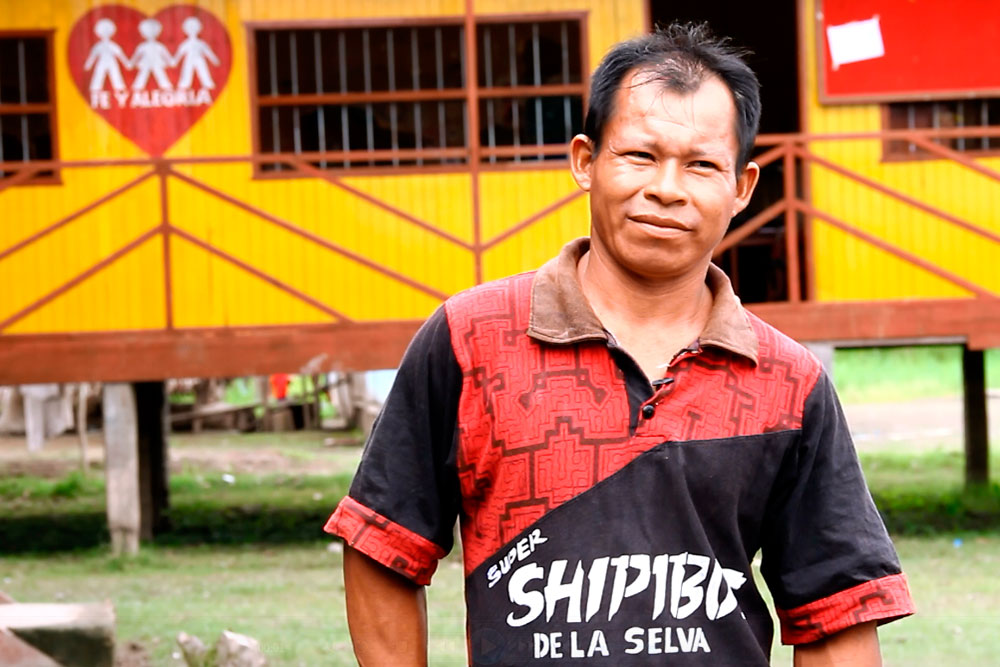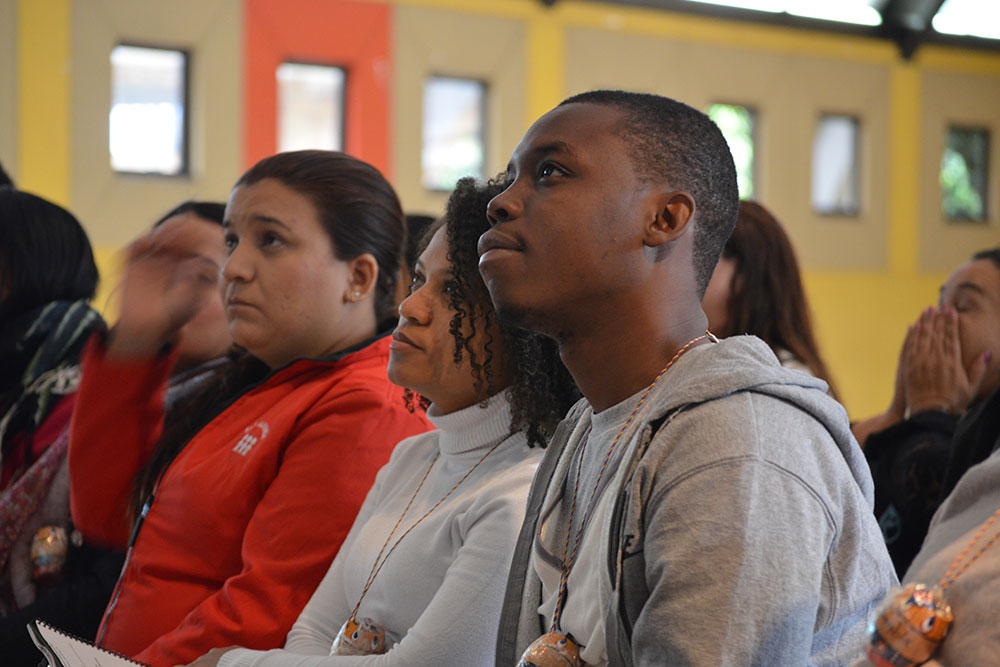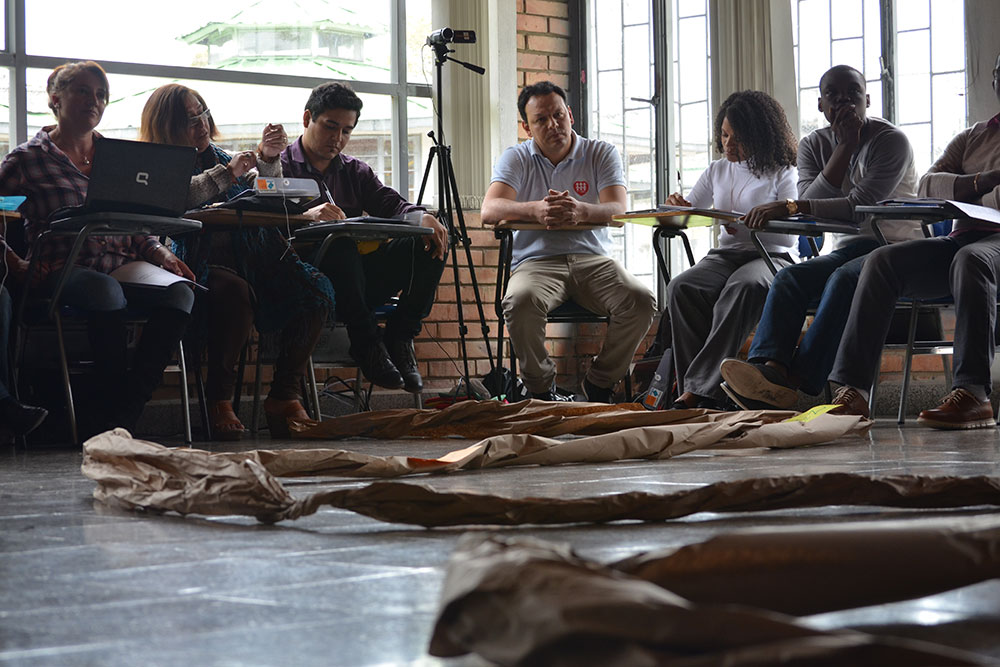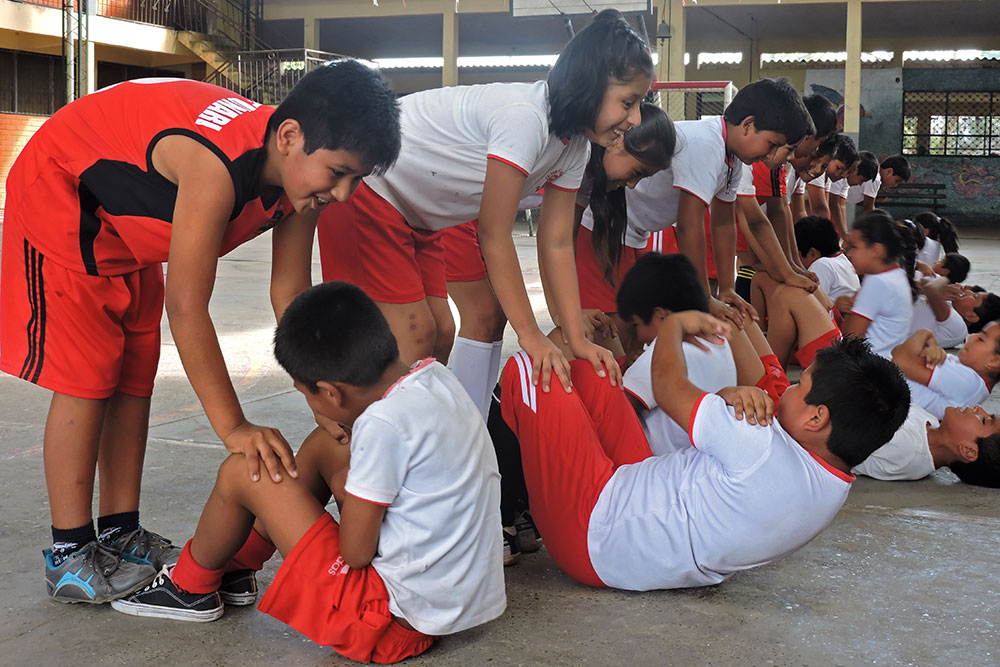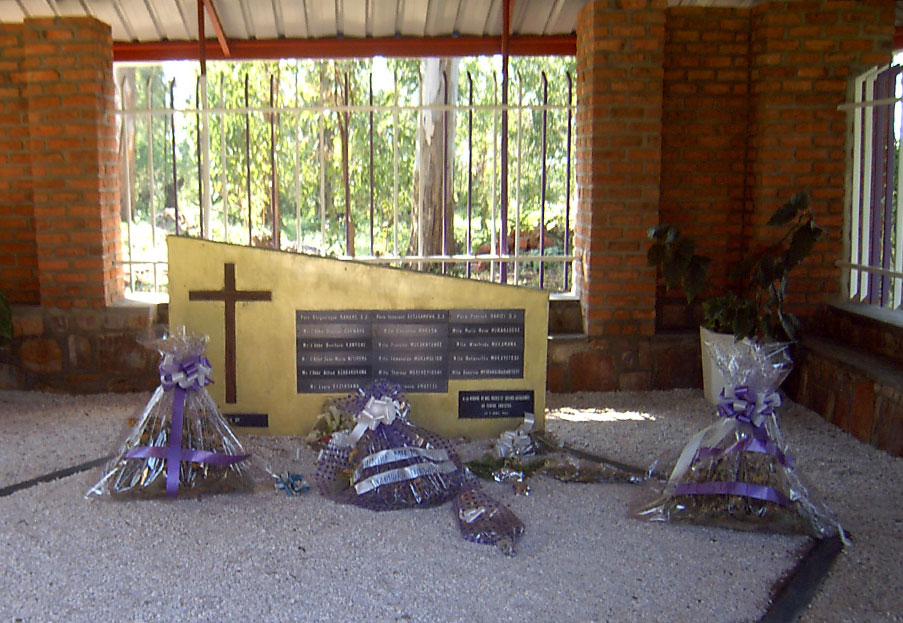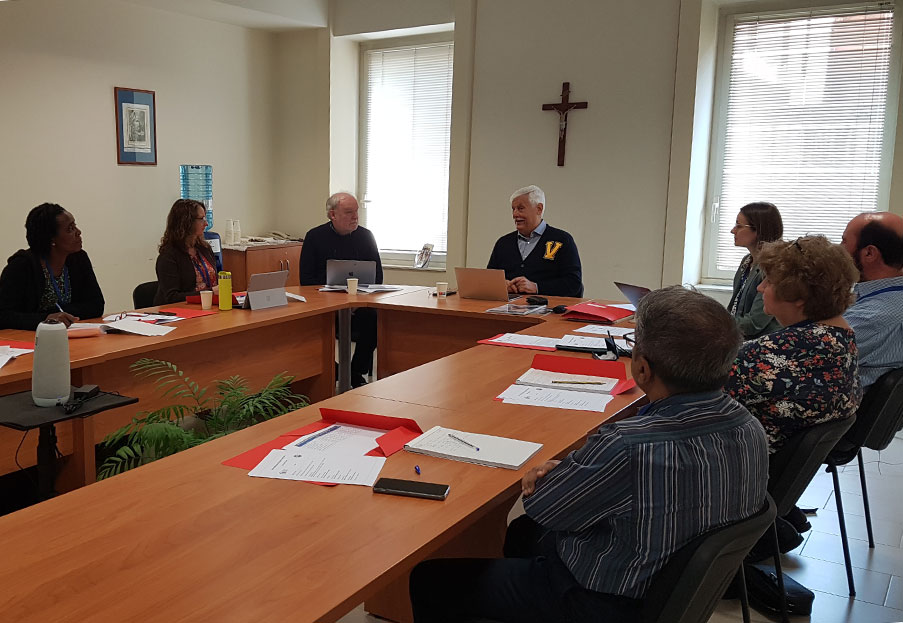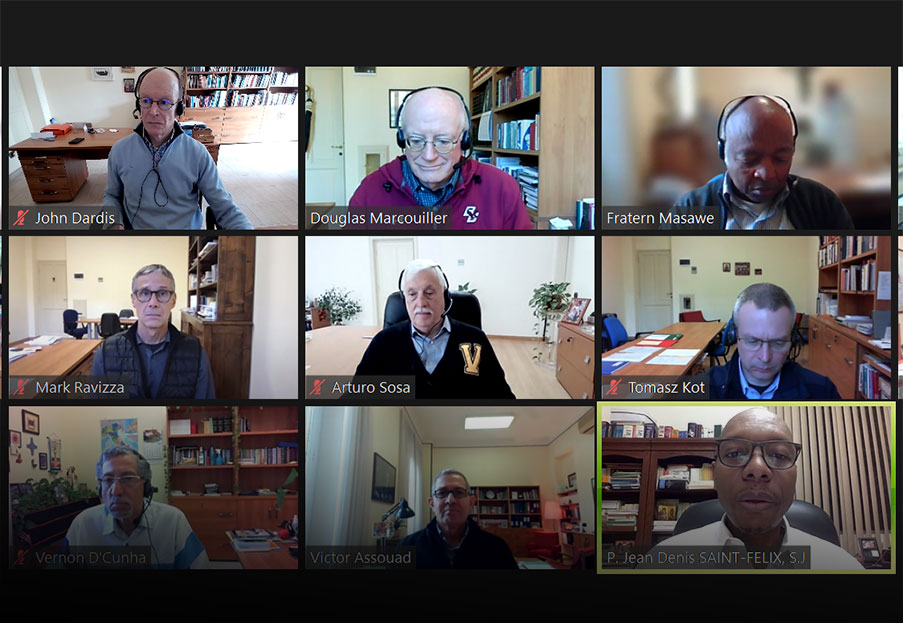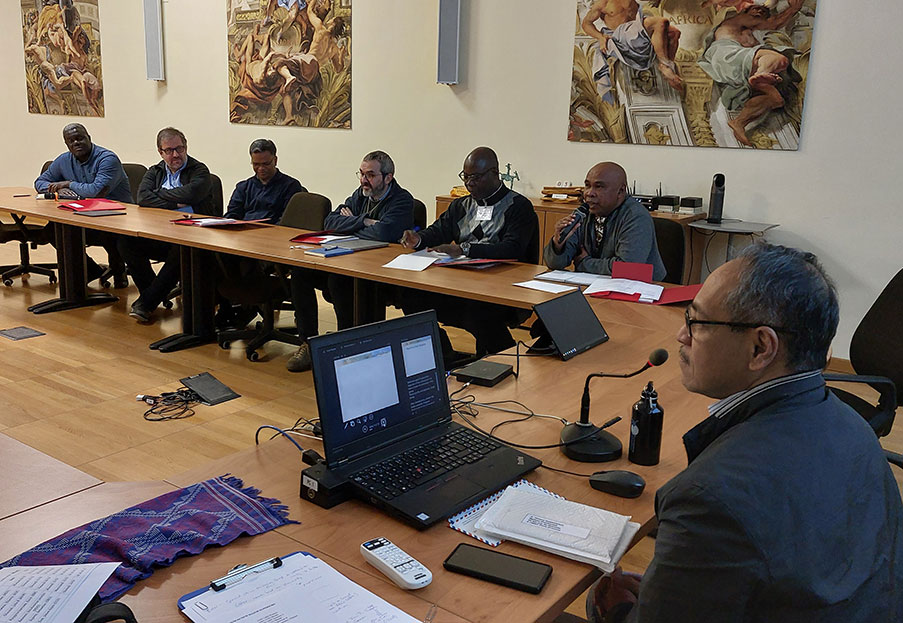A visit to the future
Fe y Alegría (Faith and Joy) is part of the dream of a “new society,” “new heavens and new earth,” which motivates the social and educational apostolate of the Society of Jesus. That is why Fr. Arturo Sosa, SJ, said to the delegates congregated in the Congress of Madrid 2018: “With you the Society wishes to visit the future.”
When I began to work in Fe y Alegría in 2003, I learned that our objective was not that our students had the best academic results, but that the education of the country improved; because for its founder, Fr. José María Vélaz, SJ, social justice starts with educational justice. In our society of knowledge, a person without education is a sure candidate for poverty, discrimination, and manipulation. For this reason, the founder said, “We cannot give a poor education to the poor.” Father Arrupe, as Superior General of the Society of Jesus and former companion of the novitiate, wrote to F. Vélaz: “I invite you to continue in that spirit of qualitative innovation to the service of the growth of the poor as subjects of their own destiny, children of God and builders of a just and fraternal society.”
When Fe y Alegría started in Caracas in 1955, one fourth of the
Venezuelan population was illiterate. Today in Latin America, only Haiti has an
illiteracy rate above 10 %. The continent has won the battle of school
coverage, but not that of educative quality. Since its origin, Fe y Alegría
has endeavored not only to bring education to “where the asphalt hasn´t
arrived,” but to guarantee that the poor receive a quality education which
allows them to overcome the breach of social injustice.
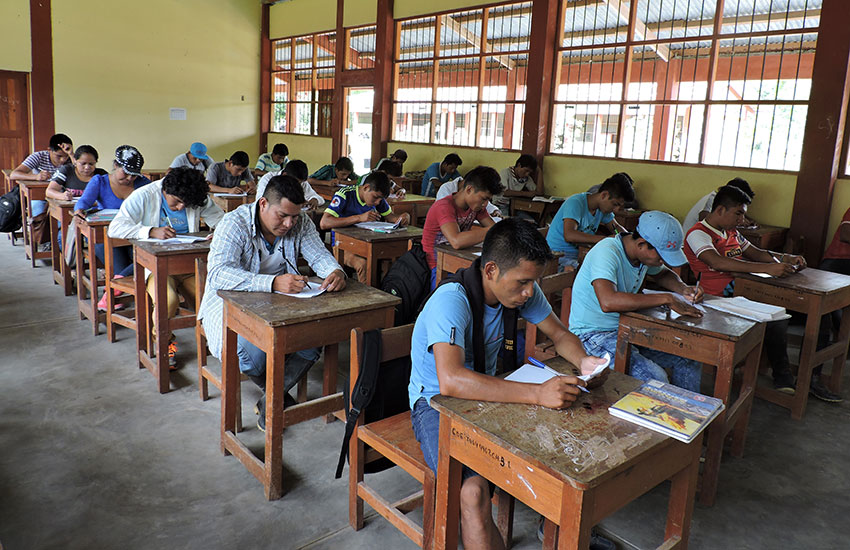
We know that the poor are many. In 1960 in Latin America more than half of the population was poor (51 %). In 2016, nearly a third still was: 30.7 %. Only a massive response can meet the challenge of education for the poor. It is necessary to gain as allies the state, the civil society and the whole population. That is why Fe y Alegría was born as a social movement which calls the entire population, including the poor themselves, in order to overcome poverty with education.
And we are being successful in gradually getting different actors committed to this form of non-state public education: the states; the more than 100 religious congregations who collaborate with the project; the business community and the popular sectors who assume their civic responsibility to education. Thus, the false dichotomy between state public education and lucrative private education is broken.
But is it true that quality education can be
achieved in contexts of extreme poverty? Today it is said that the greatest
obstacle to learning is poverty. The schools of Fe y Alegría are in all
contexts of poverty, including extreme poverty. The students of Fe y Alegría
have this factor against them and, despite this, they achieve better results.
One proof is the rate of repetition and drop-out. Fe y Alegría achieves drop-out rates under 5 %. In contrast, five countries of Latin America have drop-out rates above 25 %. The same is true of repetition, which is below 5 %. Only four countries of the region have such a low rate.
Among the contributions of Fe y Alegría
to Latin American education we can speak of the very concept of quality
education and the programs that promote it; the practice of inclusive
education; the contributions to intercultural education, above all in
indigenous contexts; the teacher formation systems; models of education for the
workplace, including the training of young people with special capacities; the
networks of rural schools; the forms of community participation in the schools
and of these in the community; the incorporation of the new technologies in the
educational process. In Spain there is the formation of the awareness of
responsibility in international cooperation and in Italy the training of
migrants.
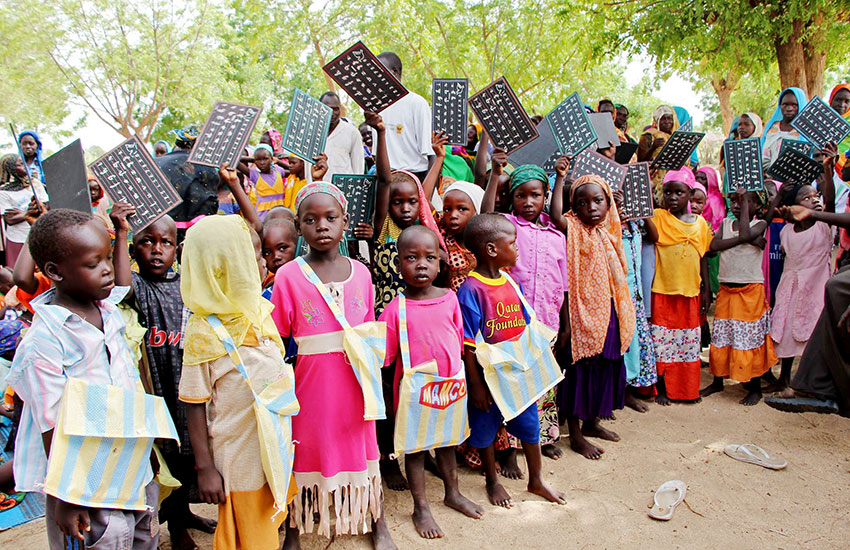
With the presence of Fe y Alegría in Africa, a new form of relation with the community, typical of the African cultures, is incorporated. The challenge arises to create new systems of quality adapted to the diverse contexts of geographical and sociological “frontiers.”
Each national office of Fe y Alegría has
a team dedicated to influencing educational policies so that the right of the
poor to a quality education might become a reality. As Fr. Arturo Sosa, SJ,
says: “The work of Fe y Alegría would not be understood if it did not
have an influence, gradually and measurably, both in the transformation of
public education and in the definition and implementation of public policies
which make the right to a quality education a reality anywhere in the world. It
is a local, and simultaneously global, struggle.”
[Article from "Jesuits - The Society of Jesus in the world - 2020", by Jorge Cela SJ]
